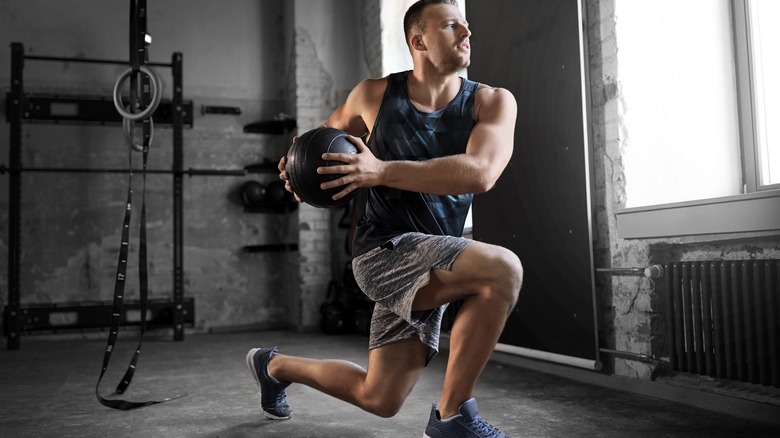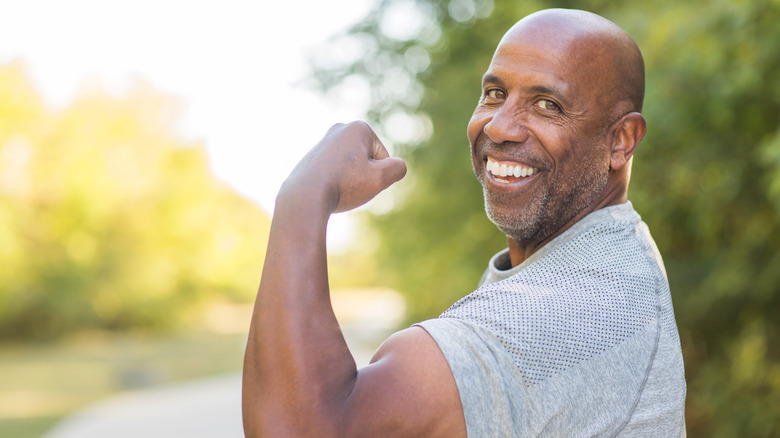What Is The Strongest Muscle In Your Body?
Your body is made up of more than 600 muscles performing different jobs to keep you going throughout the day. Some of your muscles work under your control, such as the skeletal muscles, which help you to move, sit, and stretch (via Cleveland Clinic). Other muscles, such as the cardiac and smooth muscles, work involuntarily, controlling the heart and other organs to keep your body functioning regularly.
Your muscles also play a key role in your body's strength, how well you can move, exert yourself, and lift things. However, according to Hodder Education, muscle strength can be measured in different ways. For example, maximum strength is the amount of force your muscles can exert, whereas dynamic strength refers to your ability to endure repeated motions over time. Elastic strength measures your ability to handle resistance in such actions as hitting or throwing, while strength endurance determines a muscle's ability to handle fatigue. With so many different ways to track muscle strength, it can be difficult to pin down which muscle in the body is the strongest. However, there is one that is shockingly strong, and you use it every day.
There are a few contenders for strongest muscle
There has been a lot of debate as to which muscle is considered the strongest, given that there are a lot of factors that go into determining strength (via Library of Congress). There are a number of muscles that qualify as being among the strongest in the body. For example, the gluteus maximus is tasked with the job of keeping your entire upper body upright, and also is the muscle that aids you the most when walking up a flight of stairs. The tongue is made up of a number of muscles, all working together to help with eating, forming letters, and filtering out germs.
When it comes to the ability to generate sheer force, however, the award for strongest muscles in your body goes to your masseters, located on either side of your jaw. The masseter is primarily tasked with chewing, and these muscles have the ability to close with approximately 200 pounds of force with your molars. Your incisors can generate up to 55 pounds of force thanks to your masseters. According to a 2014 study published by Clinical Interventions in Aging, the masseter muscle may also play a role in the physical fitness of elderly patients. The study showed that patients who demonstrated stronger masseter tension also had better hand grip strength and fewer signs of malnutrition.
Be kind to your masseter muscle
While you're eating, your masseter joins forces with three other muscles — the temporalis, medial pterygoid, and lateral pterygoi — to work the jaw up and down, aiding in the chewing of food, per Healthline. In addition to its role in mastication, the masseter is helps to keep the temporomandibular joint stabilized (via TMJ Therapy & Sleep Center of Colorado). When you grind your teeth or develop TMJ, it can lead to pain masseter pain. Pain in this muscle can also lead to other conditions, such as vertigo, tinnitus, and earaches.
If you are experiencing masseter pain, you can try and give yourself a masseter massage. Applying pressure with your thumb while clenching your jaw gently for 20 seconds or so should help ease your discomfort. That said, the TMJ Therapy and Sleep Center of Colorado advises that this kind of therapy is not a guarantee. Should your symptoms persist for longer than seven days, you should consult your doctor to help get your masseter pain under control.



